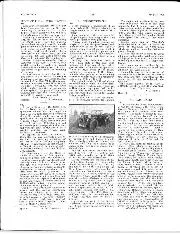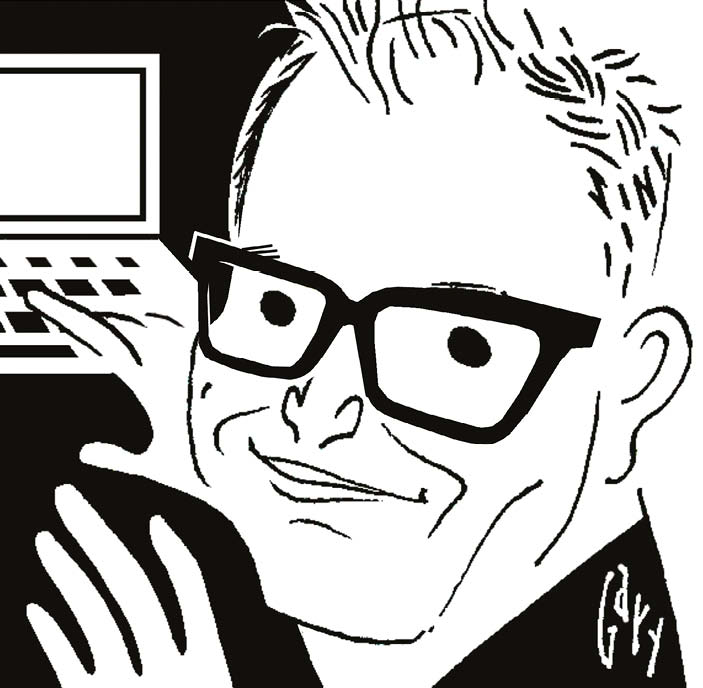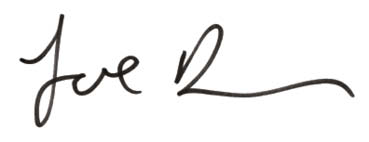
AN INTERESTING M.G.
AN INTERESTING M.G. Sir, .• I am enclosing, a photograph of my rather hybrid M.G. Midget, which has a C-type engine in an M-chassis of 1930 vintage. I am wondering…

I recently interviewed probably the most important man in the US car industry. He is also a racer and team owner and a totem for all that is good about our sport. The man is so loved and respected by colleagues, team members and fans that he has for more than half a century been known as ‘The Captain’.
The interview with Roger Penske was to take place at the Royal Automobile Club in Pall Mall – and I was dreading it.
This was not because I was overawed – although I probably should have been. Penske is a bona fide captain of industry (Penske Corporation employs more than 50,000 personnel, has an annual revenue of $26bn, and has interests in everything from truck rentals to car dealerships and component manufacturing). It was not because of his personal wealth either (estimated to be $1.87bn). And, by the way, wealth built on real things – cars, trucks, engines, manufacturing, dirt, sweat and tears, not paper billions conjured from nowhere in Silicon Valley.
It wasn’t because of his record as a driver (he showed real promise in sports car racing and competed in two US grands prix) or even as an entrant: Team Penske currently competes in five series, from NASCAR and IMSA to Australian V8 Supercars, has won the Indy 500 a record 17 times – most recently with Will Power in 2018 – and last year he recorded his 500th win as an owner across all racing series. He also remains the last American constructor to have won a Formula 1 grand prix after John Watson’s win in Austria in 1976.
It wasn’t even because, ahead of the interview, I’d been hooked on YouTube videos showing Penske talking about leadership to some of his employees. In the talks, Penske demonstrates an acute knowledge and innate expertise of the human condition: what motivates people, why some people succeed and others don’t and what leadership really is. He is clearly a no-nonsense CEO with a tough sensibility honed in the unforgiving world of competitive motor racing.
But I’ve been a journalist long enough to put all of these things to one side. No, the reason I was dreading the meeting was that they say you should never meet your heroes – and Roger Penske is undoubtedly mine.
What, I thought to myself, as I walked down Pall Mall, if ‘The Captain’ turns out to be more Mainwaring than Marvel? Or if he is needlessly aloof? This is exactly what happened many years ago when I interviewed Glenn Frey, and I still can’t listen to Tequila Sunrise in the same way.
Of course, it turns out I needn’t have worried. “So, how is Motor Sport getting on?” he said casually, as he sat down before the tapes started rolling. He listened to the answer, adding that his son, Jay, was in the magazine world too and facing similar challenges and opportunities. It was said as if his son was another jobbing journalist and you would never have known from his tone that he in fact owns Rolling Stone magazine and Variety.
During the interview that followed he was candid and fascinating – and, for a man who claims not to like talking about the past, was illuminating about his immense history in racing (the full interview is available as a podcast via our website). He feigned interest in a dud anecdote of mine, and was then genuinely interested in a car restoration that related to his past, even though by rights he shouldn’t have been, even handing over his business card and asking me to email him all the details.
In fact, he was so charming and at ease that it was easy to forget his stellar record or his place at the top of a global corporation. They say you shouldn’t meet your heroes but I’m glad that I’ve met one of mine.
Entirely coincidentally, I was backstage at Race Retro the day after the Penske interview waiting to go out on satge and found myself chatting to John Watson. I mentioned that I had asked Penske who his favourite driver was. Watson jumped in: “It must have been Rick Mears.”
“Actually”, I replied, “he named you, on the basis that you won his only grand prix.”
Watson was surprised, then said, modestly: “Probably playing to the home crowd.”
It is almost 25 years since one of the most tragic weekends in Formula 1 history, when Roland Ratzenberger and Ayrton Senna lost their lives on consecutive days at Imola. For a future issue, we’d like readers to submit their recollections of San Marino 1994. Where did you hear the news – or were you perhaps at the track? Contributions welcome via [email protected].

Joe Dunn, editor
Follow Joe on Twitter @joedunn90